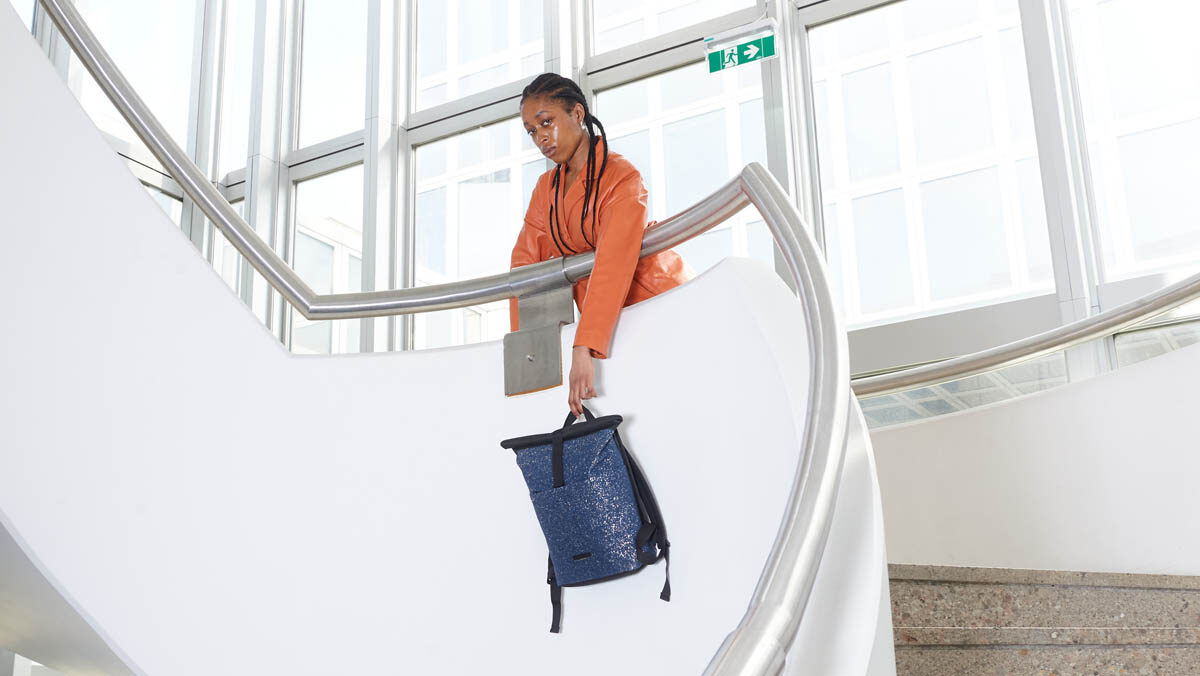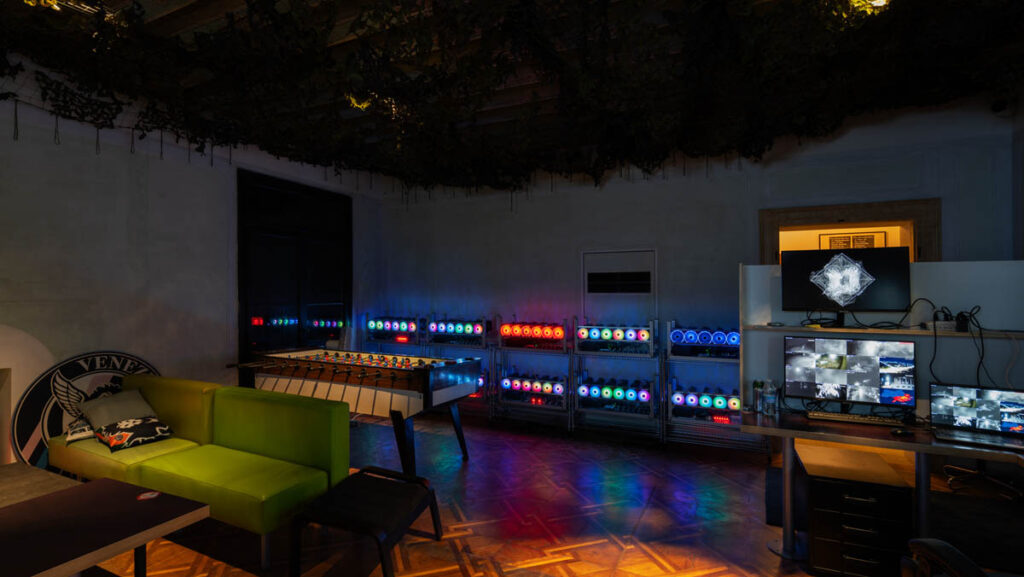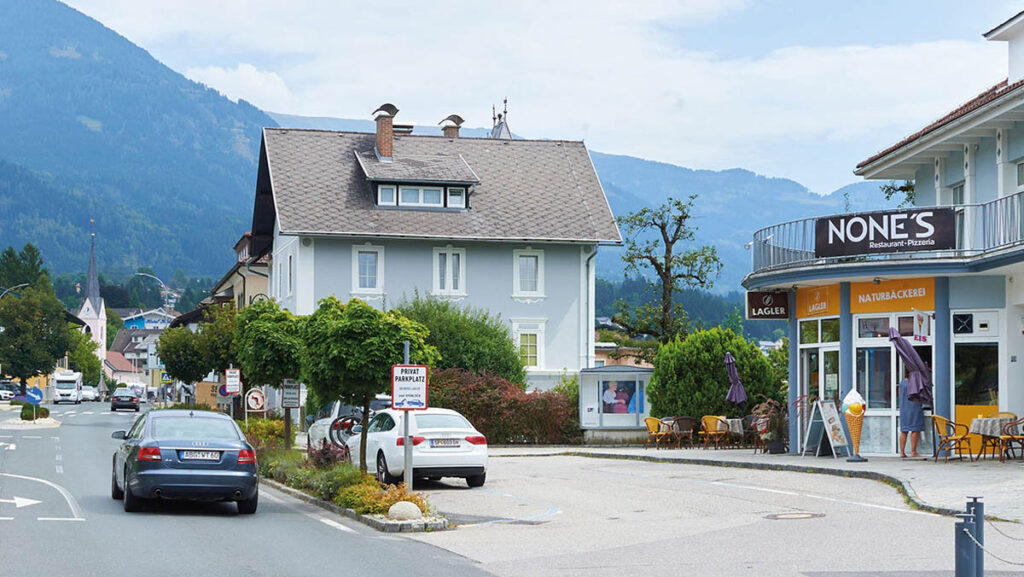The limited edition Ucon Acrobatics did with Bauhaus is also here, and Jochen pointed out the importance of craftsmanship and the uniqueness of products we often forget.
First of all, congratulations on the twenty-third anniversary Ucon Acrobatics has this year!
Thanks a lot. It’s been quite a ride and we are super happy that we are still here stronger than ever after all these years. Martin Fussenegger and I started the brand when we were still in school, on the beginning it was a clothing brand, actually a skating brand, and from there we developed more in the direction of streetwear and fashion- from time to time we also did accessories like beanies and underwear and then we started with some bags and backpacks. Before with the clothing, we had a minimal approach to design, and we tried to transfer this contemporary look also on bags and backpacks. The sales of the accessories started being good, so around 2016, we decided only to concentrate on bags and backpacks. Since that day, Ucon Acrobatics has become the brand you know for now.

Initially, it was just two people, but as the brand grows, how many people are in the team at the moment, and what does the team dynamic look like?
We have quite a large network of very talented people right now, at the moment there are seven people in the team because we are reacting to the market very fast; if there is a lot to do, there are always more people around. Our focus always changes with the brand’s needs; sometimes we need more photo shoots or video production, and so on. We are very flexible with our team here, and we embrace this openness because we recognize that the way of working and life in general has evolved over the past years, particularly during COVID-19.
I would like to highlight, next to all the great things your products are, that the price range and quality of your products are more affordable to people than the prices of luxurious brands that might not even have this serious research and focus on the production of the product.
Already in 2015, we started using recycled PTE from plastic bottles to make our textiles before anyone else was doing it. We always created fabrics on our own, as well as the construction of the backpack- for example Phantom series or Aloe series—especially now the Lotus Infinity series. We want to create a backpack from scratch; that has always been our mission. As a brand, we also want to make an impact, not just touch 1% of clients who can afford quite expensive products. We want to be affordable and offer minimalism, quality, sustainable, and practical products for our customers to use, enjoy, and talk about.

How did the collaboration with Bauhaus come along?
The values of Bauhaus, which later became a driving force in modern design, architecture, and art, are what Ucon Acrobatics was built on. Their archive is in Berlin, as well as ours. We contacted them quite a long time ago; it was a bit of a mission. They are very strict with the partners they select, and we were happy to be selected. When we started, it was about realizing what we had in common and what they liked. Together, we came to the decision that we wanted to have minimal design combined with craftsmanship. Our silhouettes are minimal, but the fabric in our collaboration is the highlight. So we came up with the idea of using cork fabric from Portugal that we cut into thin layers and then fixed to a silver waterproof film. In the final step, blue paint is applied to the cork surface using a rubber roller. The unique structure of cork, with its jagged textures, allows for unique artistic compositions, and every piece and every backpack in our collaboration became unique in a way because cork is a natural material that could not have the same structure everywhere.
How did you decide which of your regular models of backpacks would be produced for the collaboration with Bauhaus?
It was a decision we took together; it was a mix of our favorite products and the ones they liked the most. They wanted to use the Kito backpack in mini size; it is one of our most minimalistic backpacks with a clean design. Hajo backpack is one of our top sellers; people like it a lot, so we chose it as well. The Hajo Backpack is also coming in mini size and Alison in medium size. Alison is quite a new model, and in the range of these three, it fits very well.


Can you explain the differences, for example, between the models Kito and Hajo?
With the „Hajo“, you can also scale the volume of the backpack. There is a roll-top, so if you need more space, you just roll up, place things, fill it, and close it on top. So it is slightly more practical, especially for groceries. Allison and Kito are a bit more minimal contemporary, but they are still unisex models for everyday life. Clean shapes, minimal—that’s why I think this combination makes the set nice. In general, we have a lot of silhouettes, but there is something for everyone to choose from because we are all different and we all have different needs.
You do a lot of collaborations with artists; how is that functioning?
We always ask what the artist likes and which silhouettes they find interesting. It depends on the patterns that would be used as well because often the motives guide us to the perfect shapes of backpacks. Different sets of products come with each collaboration; this is the exciting part.
How the lifestyle of you two is involved in your design and decision-making regarding materials?
Both Martin and I cycle a lot, so that was the main inspiration for the Phantom series with highly reflective material For this series, we created a new fabric; it is not a reflective foil or print; it’s laminated glass beads to the fabric, but still, in the daylight, it looks very nice. We often develop ideas based on our needs and tastes in combination with needs on the market and what is already available. The brand goes side by side with our lives and how we are growing. It became even more dramatic in this sustainable matter; eight or nine years ago, we did plastic bottle recycling, and in the last three years, we have focused on textile recycling. We grew up as sustainable people, and we need to reflect that in our brand that is why I think we survived twenty-three years as a brand because we are honest with the people we work with and with our customers sharing a common understanding of values. There is a lot of greenwashing, and nearly every brand now is telling you that they are sustainable. In a lot of cases, this is just not true.
We dove deep into the construction of our products and all the fabrics, trims, and details used in the production. We don’t use sustainability as a PR topic, it’s in our DNA.

Where the production is based. And how complicated is the working process, from the idea to the final product?
Martin is very often in Asia, engaging directly with all of our suppliers. Due to the significant changes we’ve undergone, he is constantly on the move, maintaining direct communication with them. Martin visits all the factories, he does all the research. We have direct contact with all our suppliers and the whole supply chain and I think not so many brands have that. It was a long way, but around four years ago we decided to be on the edge of the supply chain and to understand the whole process from the very beginning to the end. Being one of the very first ones to do textile recycling in the world can be hard because it still hasn’t become mainstream. But we trust in the fact that textile recycling will be the future. We have faced a lot of difficulties in the last years so we had to learn that besides passion you also need a lot of patience to go through. But now we are super proud to produce ‘circular ready’ products which have been a big step for Ucon Acrobatics.

Companies need to start going where it gets very, very uncomfortable which means margin and resources. What always falls behind is the fact that sustainability is very expensive in the first step, it is an incredible investment if you are honest about it. And on the other hand, it is incredibly time-consuming. We are a super small team and of course, this has also slowed us down in other areas, but we wanted to implement it now with the utmost consistency because otherwise, in a way, it doesn’t make sense for us to continue producing products. We want to do it as sustainably as possible at every stage and if that’s not the case and we can’t live with it, then we’d rather not do it at all. The fashion industry needs to take the next step now, we need to become circular, otherwise, we will flood the market with waste and that won’t last long. It is important that every customer realizes this and takes a closer look at the companies and the products they consume. We are very much hoping for a change in the mindset of companies and consumers.

Tell us more about the Lotus Infinity series and its importance in the textile recycling program.
The Lotus Infinity Series is crafted from ‚PUrTEX∞‘ a custom ultra-durable tech material. Ucon Acrobatics has developed this progressive material over several years, which is second to none. Increased longevity means reduced thickness. Lower ecological footprint and steps into circularity. It is made from recycled textile waste and finished with a rigid coating of solvent-free polyurethane (PU). The PU foam layer has a cross-link structure, so the functional aspects are similar to those of molded rubber. More about it can be read on our website. From the outside, it looks like the same backpack as before, but it is a completely new product. And this is hard to explain. This is why we are so focused on spreading the message.
Ucon Acrobatics – www.ucon-acrobatics.com, www.instagram.com/ucon_acrobatics/
Photo credits. Photography: Daniel Lichterwaldt | Model: Alexa | Styling: Kristina DESKA Nikolić | Backpack: Ucon Acrobatics | Coat by Bender Vintage | Earings: DESKA earrings






